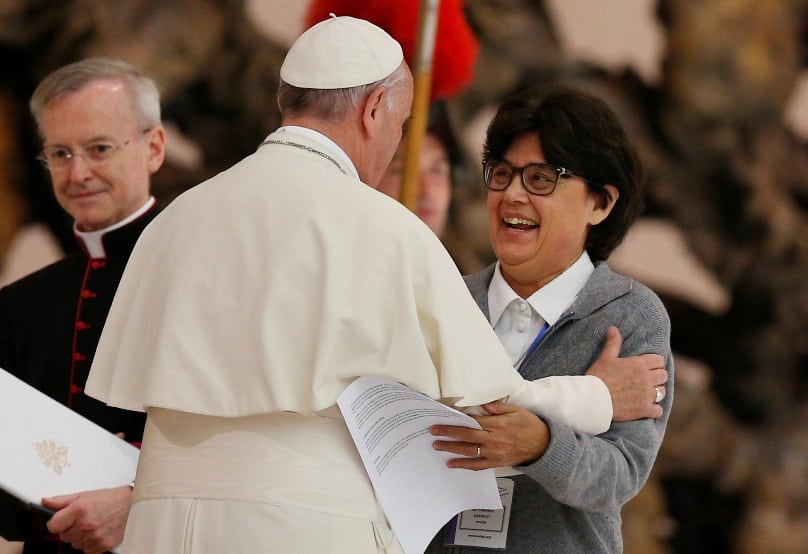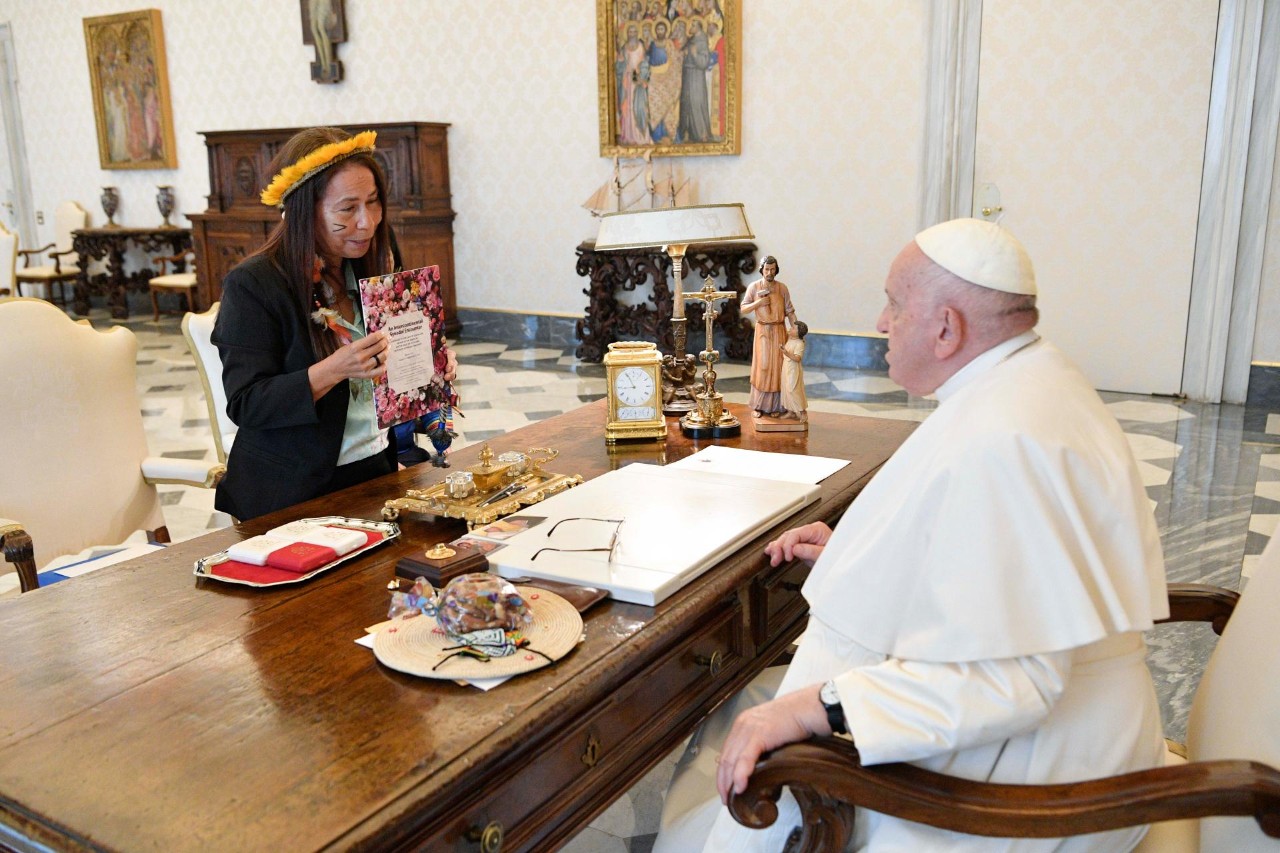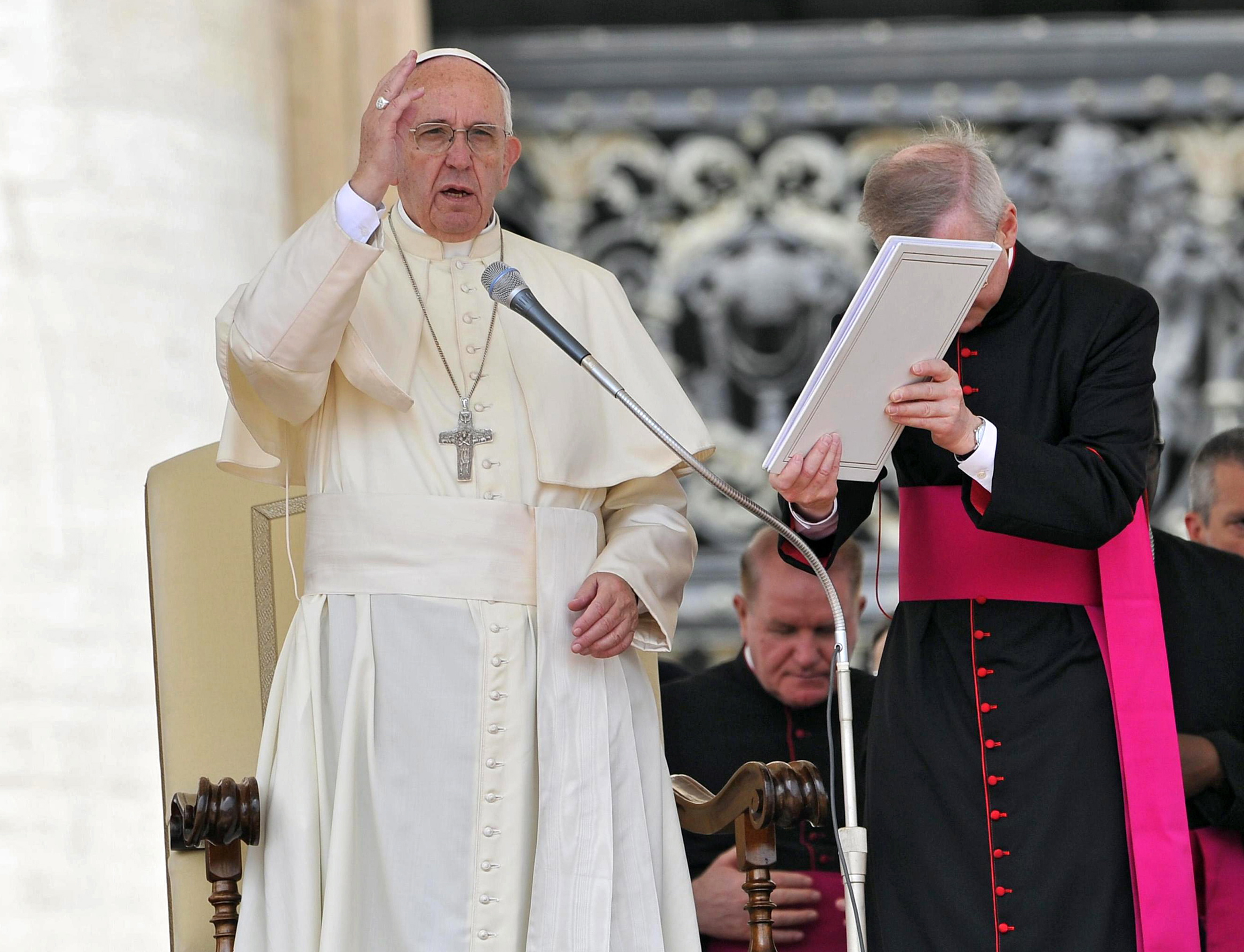Pope Francis On Women Deacons: No To Ordination Now - But What's Next?
Has the Vatican definitively closed the door on the possibility of women serving as deacons? The answer, despite ongoing discussions and study groups, appears to be a resounding, yet nuanced, "no," at least for the foreseeable future.
The Vatican, a city-state steeped in tradition and complex theological debates, has once again found itself at the center of global attention. This time, the focus is on the role of women within the Catholic Church, specifically, the possibility of ordaining them as deacons. The recent synod, a gathering of bishops from around the world, concluded with a decision that effectively rules out this prospect, or at least postpones it indefinitely. This stance, reiterated by Pope Francis himself on multiple occasions, underscores the significant obstacles that advocates for female deacons continue to face.
The debate, however, is far from over. The issue of women in the diaconate is a complex one, intertwined with historical precedent, theological interpretations, and the evolving role of women in contemporary society. Pope Francis, while seemingly against the ordination of women as deacons, has simultaneously acknowledged the importance of further study and reflection on the issue, creating a delicate balance between upholding established doctrine and acknowledging the evolving needs of the Church.
The journey of this issue is not a short one, there is several aspect associated with this topic, following table provides a detail information on the topic:
| Aspect | Details |
|---|---|
| Historical Context | The diaconate, in the Catholic Church, is the first of three ranks in ordained ministry: deacon, priest, and bishop. Historically, there were deaconesses in the early Church, whose role, however, is a subject of ongoing scholarly debate. The nature of their ministry, whether it was an ordained one, and its similarities to the current diaconate are key areas of discussion. |
| Theological Considerations | Central to the debate are theological interpretations of scripture, tradition, and the nature of the sacraments. The Catholic Church's understanding of holy orders and the exclusion of women from the priesthood (and by extension, the diaconate, which is considered a step towards the priesthood) are critical. |
| Pope Francis' Stance | Pope Francis has repeatedly expressed his opposition to ordaining women as deacons, citing theological reasons. However, he has also authorized study groups to examine the historical role of women deacons and to deepen the reflection on the issue, demonstrating a willingness to engage in a thorough and nuanced assessment of the issue. |
| Synodal Process | The Synod of Bishops, a gathering of bishops from around the world, is an important forum for discussing issues facing the Church. The synodal process, which involves consultation and discernment, influences the direction of the Church. The decision to exclude the ordination of women from the agenda of the synod reflects the current consensus among the bishops and the Vatican's stance. |
| Study Commissions | Pope Francis has established several commissions to study the female diaconate. These commissions are tasked with examining historical data, theological arguments, and practical implications. The results of these studies will inform the Church's future decisions on the issue, despite the fact that the reports of such studies have often not been made public. |
| Public Perception and Advocacy | The issue of female deacons has garnered significant public attention and spurred passionate advocacy from various groups. The voices of those who support women in the diaconate and the counterarguments are part of the dynamic public discourse surrounding this topic. |
| Impact on the Church | The decisions made regarding women in the diaconate will significantly impact the Church, its structure, its relationship with its members, and its standing in the world. The Church has acknowledged the importance of sending a message to the world where there is a rising advocacy for the role of women in society. |
For further information, refer to the official Vatican website: Vatican Website
The debate over women deacons is not just a Vatican issue; it's a reflection of broader societal discussions about gender equality, leadership, and the evolving roles of women. The Churchs stance on the issue is a dynamic one, characterized by both continuity and change. While the prospect of immediate change appears limited, the ongoing dialogues, study groups, and the continued exploration of the issue are important steps.
The most recent synod, a significant gathering since the 1960s, highlighted the deep divisions within the Church on this issue. Although a final document was approved, it ultimately stopped short of paving the way for female deacons. While advocates had hoped for a more definitive move, the outcome reflects the complexities and sensitivities surrounding this matter.
One of the significant actions taken by Pope Francis was the establishment of commissions dedicated to studying the female diaconate. These commissions, composed of experts from around the world, were tasked with reviewing the history and theology of women's ministry in the Church. A final report is expected in June 2025, the findings of which are eagerly awaited, but it is far from guaranteed that it will lead to substantial changes.
Pope Francis has consistently maintained that women cannot be ordained as deacons because the diaconate is the first degree of holy orders in the Catholic Church, followed by the priesthood and episcopate. He has also expressed his opposition to ordaining women as deacons in several interviews, reiterating his firm stance against women becoming clergy. During an interview with American TV network CBS, and in a separate interview for a book released in Italy, Pope Francis made his position on this issue unequivocal.
However, the Pope has also recognized that the question of female deacons cannot be "closed." He understands the importance of sending a message to the world where there is rising advocacy for the role of women in society. The naming of a French religious sister, Nathalie Becquart, as undersecretary, and the appointment of the first woman leader of a department in the church's central administration are examples of his efforts to increase women's involvement in the Church. The establishment of study groups and his willingness to consider different perspectives are also consistent with his vision for a more inclusive Church.
The Vatican's doctrinal chief has stated that it's not the time for women deacons. This stance highlights the considerable opposition to ordaining women as deacons within the Church. Despite the study groups, commissions, and the recognition of the importance of women's roles, the prevailing opinion within the Church hierarchy seems to be against immediate action.
During the 2024 session of the synod, the topic of female deacons was addressed separately. The ordination of female deacons is no longer on the agenda during a global assembly at the Vatican, but will be discussed separately. This shows the importance of the topic while acknowledging the need for a more nuanced approach.
It is important to always question the terms used and make sure they are used correctly in any discussion or reading about the topic. This is particularly true given the complexities of the theological and historical debate.
The Catholic Church's consideration of women in the diaconate is not just a matter of internal policy. It also has a significant symbolic impact. The decisions made by the Vatican influence the lives of 1.4 billion Catholics around the world and send a message to the broader world about the Church's view of women, leadership, and social justice.
Ultimately, the path forward remains unclear. Pope Francis has made it abundantly clear that he is not open to the ordination of women as deacons during his pontificate. Yet, the ongoing dialogue, study, and the recognition of the importance of women's voices suggest that the debate will continue for some time to come. The Church's trajectory will be influenced by the ongoing interplay between tradition, theological interpretation, the evolving role of women in society, and the voices of the faithful.


